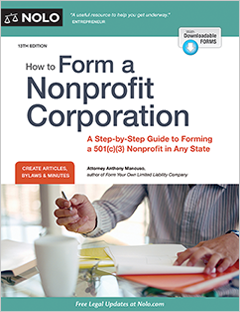 From time-to-time medical professionals, tattoo artists, organizations and others who want to start a free or low-cost tattoo removal program ask us how they can also start a nonprofit organization to support their efforts.
From time-to-time medical professionals, tattoo artists, organizations and others who want to start a free or low-cost tattoo removal program ask us how they can also start a nonprofit organization to support their efforts.
Establishing a nonprofit is a bit of work but can provide many benefits for those who choose to do so. As a 501(c)(3) nonprofit you will be able to solicit tax-deductible donations, including cash and other assets, corporate gifts, foundation and government grants, and even laser medical devices or other equipment and supplies.
Of course, you can hire a lawyer to complete the entire process, but it’s also possible for people to do it on their own.
Here are some basics that we’ve learned about how to set up a nonprofit.
Perhaps the best way is to purchase legal publisher Nolo’s How to Form a Nonprofit Corporation: A Step-by-Step Guide to Forming a 501 (c)(3) Nonprofit in Any State. This comprehensive book walks readers through the process and answers almost any question that may arise. Although it’s possible to do it all with this book, some organizations might want a lawyer to go over the final documents before they’re submitted to ensure that everything is in order.
This is the way we at Jails to Jobs did it. We used this book and had a lawyer review the final documents before submitting them to the IRS.
The Foundation Center offers details on where to find pro bono legal and accounting help at its Candid Learning website.
Consider a fiscal sponsor
An alternative to forming a nonprofit is to seek out a fiscal sponsor. A fiscal sponsor is any 501(c)(3) public charity that is willing to sponsor the projects of other organizations. Those organizations are then able to use their sponsor’s tax-exempt status to solicit tax-deductible donations and grants of their own, with the sponsor getting a percentage – usually 10 percent – of the total amount of money donated or grants received.
In most cases the projects must be related to the mission of the fiscal sponsor and be of benefit to it. Fiscal sponsors can also provide such back-office duties as bookkeeping, payroll and other human resource services, insurance, legal review and referral. They can also offer training and help with fundraising, communications and marketing. The Foundation Center offers more information on fiscal sponsorship and suggests books and articles to read at its Candid learning website.
It’s possible to find a fiscal sponsor through networking with local nonprofits and recruiting your own or searching online for similar organizations that might have an interest in being a fiscal sponsor. There’s also a Fiscal Sponsor Directory that is searchable by state and province (Canada) or by service category that may help you find one.
For many organizations getting started using a fiscal sponsor might be a good strategy, since you won’t have to wait for the IRS approval of your application, which can take months. Although usually if you’ve applied for federal tax exemption, opened a bank account, and registered with the state, you can in fact begin to solicit funds.
But having the support of an existing public charity and the resources it offers as a fiscal sponsor can be quite helpful and well worth the fee charged. It can also be easier to receive foundation gifts, as foundations may be leery to gift money to organizations that don’t yet have a track record.

